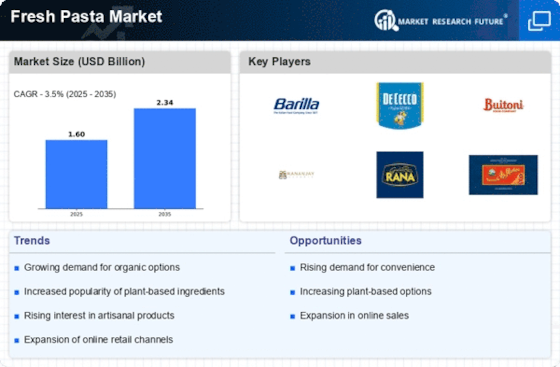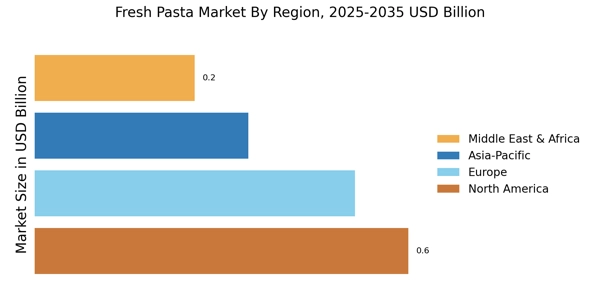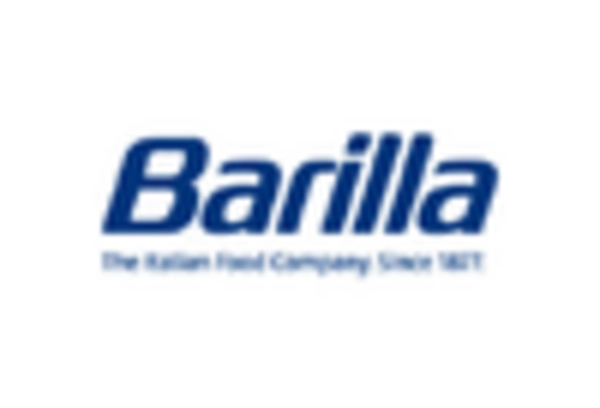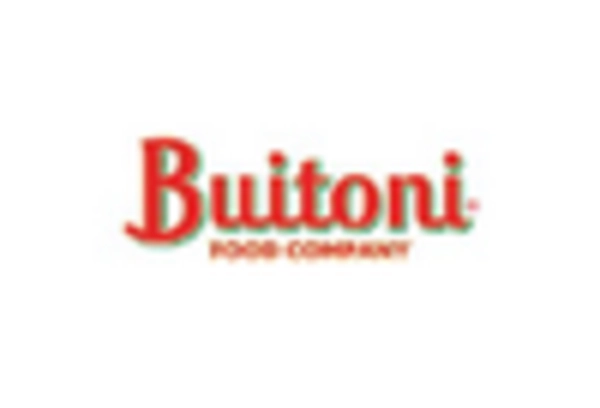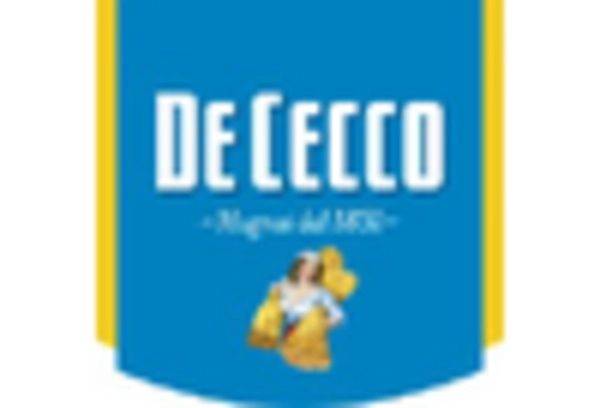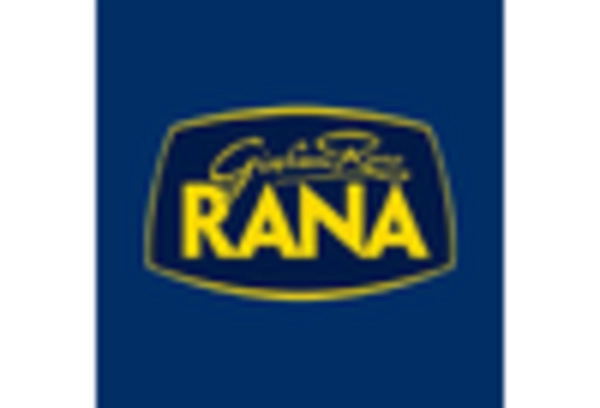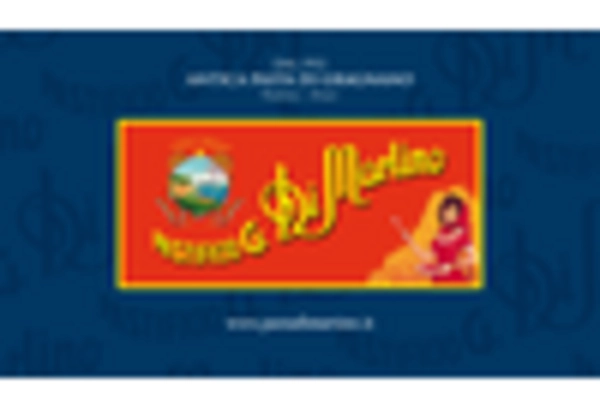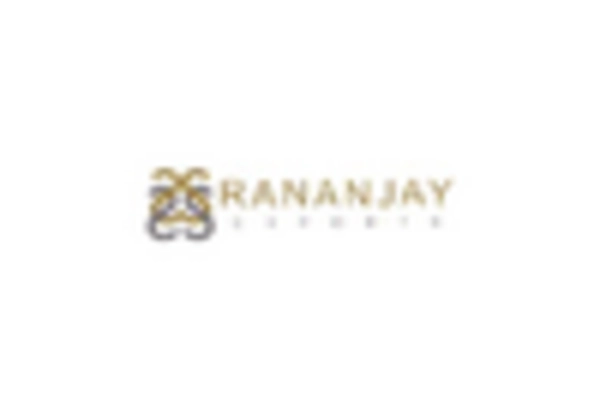E-commerce Expansion
The rise of e-commerce has transformed the way consumers purchase food products, including fresh pasta. The Fresh Pasta Market is experiencing a notable shift as online grocery shopping becomes more prevalent. Recent statistics indicate that online food sales have surged by over 15% in the last year, highlighting a significant opportunity for fresh pasta brands to reach a broader audience. This trend is particularly relevant as consumers appreciate the convenience of ordering fresh products from the comfort of their homes. As e-commerce platforms continue to enhance their offerings, the Fresh Pasta Market is likely to see increased sales through online channels, necessitating a strategic focus on digital marketing and distribution.
Health and Wellness Trends
The increasing focus on health and wellness among consumers appears to be a pivotal driver for the Fresh Pasta Market. As individuals become more health-conscious, they seek out products that align with their dietary preferences, such as organic and whole grain options. This trend is reflected in the rising demand for fresh pasta made from high-quality ingredients, which is perceived as a healthier alternative to traditional dried pasta. According to recent data, the health food sector has seen a growth rate of approximately 8% annually, indicating a robust market for fresh pasta that caters to health-oriented consumers. The Fresh Pasta Market is likely to benefit from this shift, as manufacturers innovate to create nutritious offerings that appeal to this demographic.
Sustainability and Ethical Sourcing
Sustainability has emerged as a critical concern for consumers, influencing their purchasing decisions across various food categories, including the Fresh Pasta Market. There is a growing expectation for brands to adopt sustainable practices, from sourcing ingredients to packaging. Recent surveys indicate that over 70% of consumers prefer products that are environmentally friendly and ethically sourced. This trend is prompting fresh pasta manufacturers to explore sustainable ingredient options and eco-friendly packaging solutions. The Fresh Pasta Market must respond to this demand by prioritizing sustainability in their operations, as this could enhance brand loyalty and attract environmentally conscious consumers.
Convenience and Ready-to-Eat Options
The demand for convenience foods continues to rise, significantly impacting the Fresh Pasta Market. As lifestyles become increasingly hectic, consumers are seeking quick and easy meal solutions that do not compromise on quality. Fresh pasta, which can be prepared in a matter of minutes, fits perfectly into this trend. The market for ready-to-eat meals has expanded, with a reported increase of 12% in sales over the past year. This growth suggests that fresh pasta products, particularly those that are pre-packaged and require minimal preparation, are well-positioned to capture a share of this expanding market. The Fresh Pasta Market must adapt to these consumer preferences by offering convenient options that cater to busy lifestyles.
Culinary Exploration and Authenticity
The growing interest in culinary exploration and authentic food experiences is driving innovation within the Fresh Pasta Market. Consumers are increasingly adventurous in their food choices, seeking out authentic flavors and traditional recipes. This trend is evident in the rising popularity of artisanal fresh pasta, which emphasizes quality and authenticity. Market Research Future indicates that consumers are willing to pay a premium for products that offer unique flavors and traditional preparation methods. As a result, the Fresh Pasta Market is likely to see a surge in demand for specialty pasta varieties that cater to this desire for authenticity, encouraging manufacturers to experiment with diverse ingredients and regional recipes.


